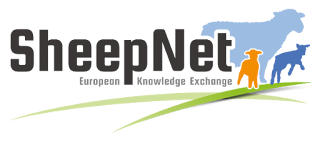Workshop on animal
behaviour and welfare in Bangalore
JMICAWE Director, Cathy Dwyer, and the coordinator of the
MSc programme in Applied Animal Behaviour and Welfare (University of Edinburgh),
Kirstin McIlvaney, have just returned from a trip to the Veterinary College in
Bangalore (Karnataka Veterinary, Animal and Fisheries Science University) where
they ran a 3 day workshop on animal welfare and behaviour hosted by Dr Abdul
Rahman and the Commonwealth Veterinary Association.
 This was part of the work
that JMICAWE are doing to capacity-build in Indian vet schools, and to support
the new Animal Welfare Research Centre based in the vet school in
Bangalore. The workshop was attended by
about 40 postgraduate students and faculty from 9 different vet schools across
India. Cathy and Kirstin focused on animal welfare sciences, and particularly
animal behaviour measurements.
This was part of the work
that JMICAWE are doing to capacity-build in Indian vet schools, and to support
the new Animal Welfare Research Centre based in the vet school in
Bangalore. The workshop was attended by
about 40 postgraduate students and faculty from 9 different vet schools across
India. Cathy and Kirstin focused on animal welfare sciences, and particularly
animal behaviour measurements.
After a day in the classroom the workshop went
out to visit the poultry and dairy facilities on site to practice their animal
behaviour data collection skills. Half the group went with Kirstin to the
poultry facility, where they compared the benefits of scan and focal sampling
and discussed how they might use different techniques to address different issues.
The other half of the group went with Cathy to the dairy unit where we looked
at the importance of good ethograms, and piloting data collection methods, and
had an attempt at conducting an on farm novel object test, based on previous
methods used in the UK. We ended the workshop with discussion of teaching
approaches to animal welfare, and exploring different teaching resources that
were available.
Some of these resources are freely available and can be
found on line at JMICAWE by following this link: https://www.ed.ac.uk/vet/jeanne-marchig-centre/cpd



















